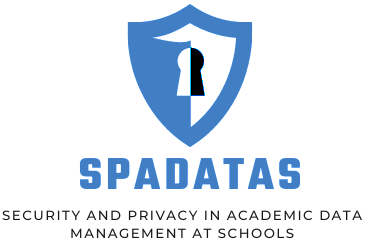Seventh-grade students at First Primary School Čakovec recently stepped into the role of young researchers to explore a topic that’s becoming increasingly relevant to their generation—digital identity. Through a creative and hands-on learning experience, the students designed their own online questionnaires and conducted a research study among their peers, aiming to uncover how young people perceive, understand, and manage their online presence.
The study focused on several key areas, including the use of passwords, awareness of digital footprints, and attitudes toward responsible online behavior. After collecting responses, the students worked in small teams to analyze the data, identify common trends and risky practices, and reflect on what the findings might mean for their everyday digital lives.
Their analysis revealed not only encouraging signs of awareness but also clear gaps in knowledge—especially when it comes to protecting personal information and recognizing online threats. The students concluded that more guidance and structured education on digital responsibility are needed at earlier stages of schooling.
This initiative empowered students to take ownership of their learning and showed how real-world issues can be tackled meaningfully within the classroom. It also sparked thoughtful discussions among students and teachers alike about how to stay safe, respectful, and informed in digital spaces.
By giving students the opportunity to investigate topics that directly affect them, this project helped develop critical thinking, digital literacy, and collaboration skills—competencies that are essential in today’s connected world. Most importantly, it reminded everyone involved that even the youngest users of technology can lead the way in promoting a safer and more thoughtful digital future.

